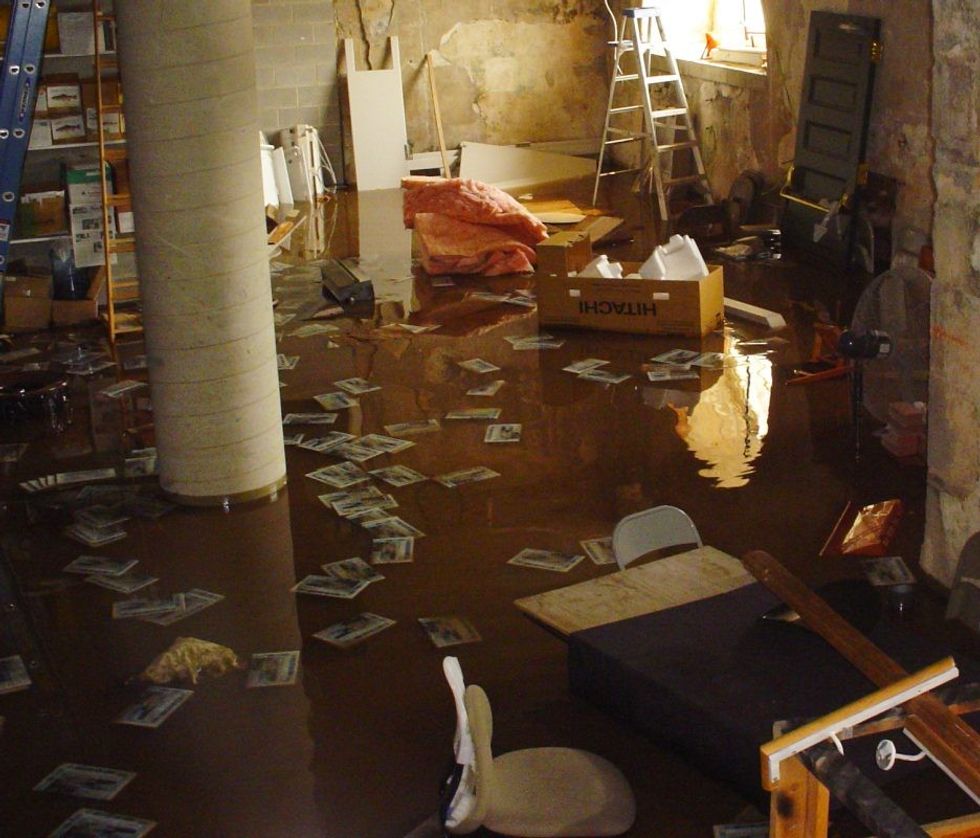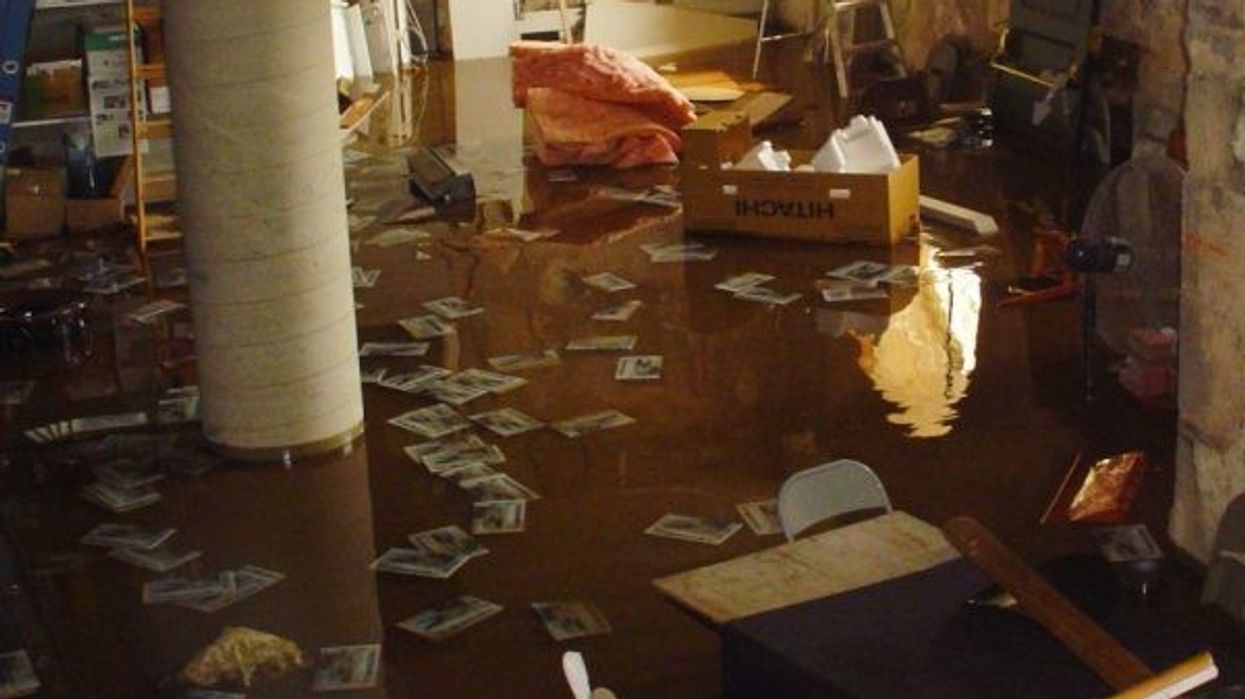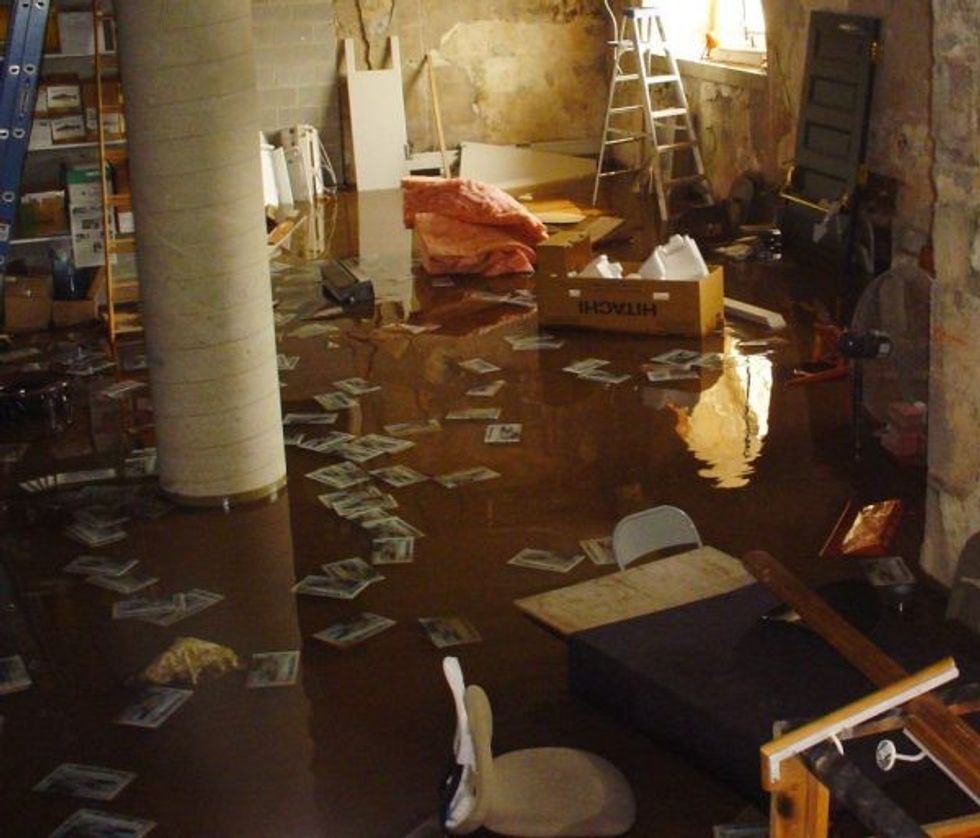
Spring has finally sprung in Toronto.
And with its long-awaited thaw, comes the sweet song of the robin, the blossoming of our gardens, the bursting of pipes and the backing up of sewers.
If you’ve not experienced a flood in your basement, you likely know a Toronto resident who's been knee-deep in one.
Ben Leonard and Jennifer Bill had only been living together a short time when their finished, functional basement was hit.
“We have a combination rec room and laundry room downstairs,” explains Leonard. “It’s a really important part of our living space. So we were particularly unhappy to discover the flood.”
Leonard knew they were in trouble when he ventured downstairs and heard that unmistakable "squishing" sound. The water was already an inch high, and though there were no sentimental possessions at risk, the damage to the home was significant.
“We had to rip everything up about two to three feet around our back wall," he says.
"Twenty-three linear feet of interior wall had to be dug out in total, and we had to install weeping tile and a sump pump.”
These stories are commonplace in Toronto, and with the worsening effects of climate change, the numbers are expected to rise ... like water in a flooding basement.
So what can be done to prevent residential flooding? And what should be done in the event of a flood to mitigate the damage?
Toronto Storeys spoke with three industry leaders to help keep you informed and above water.
Prevention
Brendan Charters is founding partner at Eurodale Developments, an industry leader in home design, building and developing. Eurodale prides itself on meeting the needs of its clients and designing homes that stand the test of time and the elements.
“Floods can come from any number of sources,” says Charters. “And no foundation is fully 100 per cent waterproof. That said, there are building and design measures that work together to help reduce the risk …”
When designing and renovating a home, Charters suggests the following:
- Make sure there is proper sloping away from the house so that there is no moisture, and things are draining properly.
- Layer exterior damp-proofing on foundation walls to help keep water out.
- A sump pump can certainly help, but they are not fail-safe. Homeowners can consider a venturi system as a backup.
Protection
According to Bonnie Lesser, general manager at Martin Merry Reid Limited Insurance Brokerage, dual coverage is necessary to protect against residential flooding.
“It is often difficult to determine the source of flooding,” says Lesser. “So it is important for a homeowner to make sure they have both groundwater coverage and sewer backup coverage.”
Lesser goes on to say that the properly insured homeowner must take onsite protective measures to stave off possible flooding. These include the following:
- Have your roof inspected for damage at least once every two years, and be sure to clean out the gutters and eaves.
- Install a backwater valve if permitted, have your sump pump tested regularly, and keep valuables up and away in the basement.
- In winter, make sure shovel snow a foot away from the exterior of the house. And as the weather thaws, check the street catch basins to make sure that they are not blocked.
Reaction
Upon discovery of a flood in a home, there is a certain protocol to follow to ensure your safety and minimize damage.
Gus Stamatakos of Floodmasters Inc. recommends the following steps if you think you have a basement flood:
- Do not walk downstairs! New building codes have raised electrical outlets, but you never know if the water is safe. And you also don’t want to track the water and dirt into the rest of your house.
- If it’s a drain backup, call the city at 311. Leave all rugs on the floor. Once you’ve been instructed by the city, contact a restoration company and your insurer.
- Make sure when choosing a restoration company that you note the company’s history. Have they been around long? Ensure they are a preferred, approved company (with IICRC certification) and that they warranty their work.
- Look online for testimonials. The right company will be well reviewed on customer message boards and with the Better Business Bureau.






















